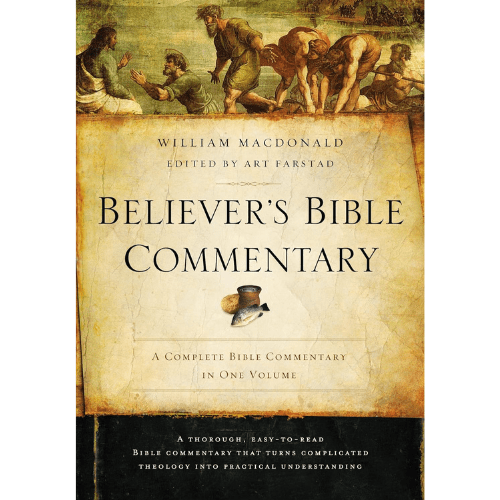Can technology in Bible study help us grow spiritually, or does it create distractions?
Many of us wonder if using digital tools will enrich our study or pull us away from deep reflection. The good news is that when used wisely, technology in Bible study can deepen our understanding, provide instant access to powerful resources, and connect us with believers worldwide.
Imagine having multiple Bible translations, concordances, and commentaries at your fingertips. With the right apps and online tools, we can cross-reference Scripture, explore original languages, and take meaningful notes—all without flipping through heavy books. Plus, digital study groups and discussion forums offer a sense of community, even when we study alone.
This guide is designed for beginners who want to integrate technology into their Bible study but aren’t sure where to start. We’ll explore the best apps, online resources, and digital tools to enhance our study time. Let’s embrace the benefits of technology while staying rooted in God’s Word!
Why Use Technology in Bible Study?
Technology in Bible study makes it easier than ever to dive into God’s Word, no matter where we are. With just a few taps, we can access multiple Bible translations, commentaries, and study tools without carrying heavy books. Whether we’re at home, commuting, or on a lunch break, Scripture is always within reach.
Beyond convenience, digital tools help us go deeper in our study. Many apps allow us to cross-reference passages instantly, compare translations, and even explore original Greek and Hebrew meanings. Instead of flipping through pages, we can quickly find explanations, historical context, and insights from trusted scholars. This makes complex biblical concepts easier to understand.
Technology in Bible study also strengthens our connection with fellow believers. Online study groups, discussion forums, and virtual Bible classes allow us to share insights, ask questions, and grow together. Even if we can’t meet in person, we can still engage in meaningful discussions and find accountability.
While technology should never replace personal reflection, it can be a powerful tool to enhance our understanding and connection with Scripture. By using it wisely, we can make Bible study more accessible, insightful, and engaging than ever before.
Choosing the Right Bible Study Apps
With so many options available, choosing the right Bible study app can feel overwhelming. Thankfully, technology in Bible study gives us powerful tools to explore Scripture in ways that fit our learning style and needs.
One of the most popular apps is YouVersion, offering multiple translations, reading plans, and social features to share insights with friends. If we want deeper study, Logos Bible Software provides in-depth commentaries, Greek and Hebrew tools, and advanced search functions. For those who love word studies, Blue Letter Bible allows us to dig into original languages, compare translations, and access free commentaries.
When selecting an app, we should look for key features that enhance our study. Having multiple Bible versions helps us compare wording and meaning. Built-in study notes and commentaries provide context, while customizable reading plans keep us on track. Some apps even offer audio Bibles, perfect for learning on the go.
To integrate Bible apps into daily life, we can set reminders for reading plans or highlight key passages for later reflection. We might also take digital notes, join app-based discussion groups, or listen to Scripture while driving. With the right app, technology in Bible study becomes an incredible tool for spiritual growth.
Believer’s Bible Commentary
Make Bible study a part of your daily life with the thorough yet easy-to-read commentary that turns complicated theology into practical understanding.
Online Study Groups and Communities
Technology in Bible study allows us to connect with others, even when we can’t meet in person. Online study groups give us a space to share insights, ask questions, and encourage one another in faith. Instead of studying alone, we gain fresh perspectives and accountability that help us stay consistent.
There are many platforms where we can join Bible study communities. Facebook Groups offer a mix of structured studies and open discussions. Reddit provides in-depth conversations on theology and Scripture. Discord is great for live chats, voice discussions, and even prayer groups. Many churches also host online Bible studies, giving us a chance to connect with fellow believers in a familiar setting.
To get the most out of online groups, we should engage actively. Asking thoughtful questions and sharing insights make discussions more meaningful. Consistency is also key—checking in regularly helps us stay engaged and grow alongside others. It’s important to approach discussions with humility and a willingness to learn. Different perspectives can deepen our understanding of Scripture.
By using technology in Bible study, we can find a supportive community that encourages spiritual growth. Whether we prefer structured lessons or casual discussions, there’s an online group that fits our study style.
Digital Bibles and Study Resources
Technology in Bible study gives us access to powerful resources that help us dig deeper into Scripture. With the right tools, we can explore different translations, cross-reference passages, and uncover rich biblical insights.
Best Online Bible Resources
Several websites provide free and easy access to Scripture. Bible Gateway offers multiple translations, audio Bibles, and reading plans. Bible Hub includes commentaries, concordances, and interlinear Bibles for word studies. Step Bible, developed by biblical scholars, allows us to explore original Greek and Hebrew meanings with simple tools. These resources help us gain a clearer understanding of God’s Word.
Free vs. Paid Resources: What’s Worth Investing In?
Many digital study tools are free, but some paid options offer advanced features. Free resources like Bible Hub and Step Bible provide solid study materials. However, premium platforms like Logos Bible Software or Accordance offer extensive libraries, in-depth word studies, and sermon prep tools. If we’re serious about deep study, investing in a paid resource may be worth it.
Using Digital Tools for Word Studies and Analysis
Word studies help us understand Scripture in its original context. Many digital Bibles let us click on a word to see its Greek or Hebrew meaning. Cross-referencing tools allow us to compare verses instantly. By using these features, we can uncover deeper truths and see Scripture from a fresh perspective.
With technology in Bible study, we have incredible resources at our fingertips. Whether we use free tools or invest in paid ones, digital study resources make learning Scripture more accessible than ever.
Using Note-Taking and Annotation Tools
Technology in Bible study makes it easy to take notes, highlight key verses, and organize our insights. Instead of relying on paper journals, we can use digital tools to keep everything in one place. With the right apps, we can access our notes anytime and build a deeper understanding of Scripture.
Several digital note-taking apps work well for Bible study. Evernote, OneNote, and Google Keep allow us to create organized notes, tag important topics, and sync across devices. These apps make it simple to jot down reflections, track study progress, and save sermon notes for later review.
Many Bible apps also include built-in annotation tools. We can highlight verses in different colors, add personal notes, and bookmark important passages. Features like verse linking and cross-referencing help us connect related Scriptures for a more in-depth study. Instead of flipping through pages, we can search for notes instantly.
To stay organized, we can create separate notebooks or folders for different topics, books of the Bible, or study plans. Using tags or categories makes it easier to find past notes when we need them. By integrating technology in Bible study, we can store, review, and expand our insights more efficiently. Whether we prefer simple highlights or detailed notes, digital tools help us stay engaged and grow in our faith.
Video and Audio Resources for Bible Study
Technology in Bible study gives us access to incredible video and audio resources that make learning more engaging and convenient. Whether we prefer listening on the go or watching in-depth teachings, digital tools help us grow in our faith anytime, anywhere.
Podcasts and audio Bibles are great for busy schedules. Apps like Dwell, YouVersion, and Bible.is let us listen to Scripture while driving, exercising, or doing household tasks. Many Bible teachers also host podcasts that cover theology, biblical history, and practical Christian living. With so many options, we can turn daily routines into valuable study time.
YouTube offers some of the best free Bible study content. Channels like The Bible Project, Mike Winger, and BibleThinker break down Scripture with engaging visuals and deep insights. Whether we’re looking for book overviews, historical context, or verse-by-verse teachings, we can find valuable lessons at any time.
Many churches and seminaries provide free sermon archives and online courses. Websites like Ligonier Ministries, Dallas Theological Seminary, and Blue Letter Bible offer rich theological teachings. We can watch past sermons, take online Bible courses, and gain deeper insights from experienced scholars.
By using technology in Bible study, we can learn in ways that fit our lifestyle. Whether we listen during a commute or watch a video lesson before bed, digital resources help us stay connected to God’s Word every day.
Overcoming Challenges in Digital Bible Study
Technology in Bible study offers incredible benefits, but it also comes with challenges. With constant notifications and social media distractions, staying focused can be difficult. To stay engaged, we can turn off notifications, use airplane mode, or set a designated study time free from interruptions. A quiet space helps us focus on God’s Word without digital noise pulling us away.
Balancing digital and physical Bible study is also important. While apps and online tools are helpful, there’s value in opening a physical Bible, journaling by hand, and reflecting without screens. We can combine both methods by using digital tools for research while keeping a paper Bible for personal reading and meditation.
Another challenge is ensuring accuracy when using online resources. Not all websites and videos provide sound biblical teaching. Before trusting a source, we should compare it with Scripture, check its credibility, and seek guidance from trusted teachers. Using well-established study tools and cross-referencing multiple sources helps us stay grounded in truth.
By using technology in Bible study wisely, we can maximize its benefits while avoiding distractions and pitfalls. With the right balance, digital tools can enhance, not replace, our connection to Scripture.
Final Thoughts on Technology in Bible Study
Technology in Bible study gives us powerful tools to deepen our understanding, stay consistent, and connect with others. From apps to online groups, digital resources make studying Scripture more accessible and engaging. By exploring different tools, we can find what works best for our learning style and spiritual growth.
The key is to start small. We don’t need to use every app or website at once. Instead, we can begin with one tool—maybe a Bible app, a podcast, or an online study group—and build from there. Over time, we’ll discover which resources enhance our study without overwhelming us.
Most importantly, technology should support our time in God’s Word, not replace meaningful reflection and prayer. When used wisely, it can enrich our study and strengthen our faith. Let’s take the next step today—choose one digital tool and start exploring how it can transform our Bible study journey!
Frequently Asked Questions (FAQ) About Technology in Bible Study
1. Is using technology in Bible study as effective as traditional methods? Yes! Digital tools offer convenience, in-depth study resources, and community connections. However, they should enhance, not replace, personal reflection and prayer.
2. What are the best free Bible study apps? Great free apps include YouVersion for reading plans, Blue Letter Bible for word studies, and Bible Hub for commentaries and cross-references.
3. How can I stay focused while using digital study tools? Turning off notifications, using a distraction-free mode, and setting a dedicated study time help minimize interruptions and keep our focus on Scripture.
4. Are online Bible study groups beneficial? Absolutely! They provide accountability, fresh insights, and community. Platforms like Facebook, Discord, and church-hosted groups help us engage with other believers.
5. How do I know if an online resource is trustworthy? Check the author’s background, compare with Scripture, and use well-known sites like Bible Gateway, Logos, or Blue Letter Bible for reliable study materials.





